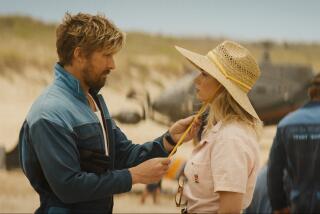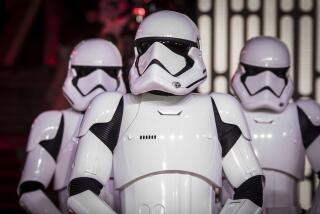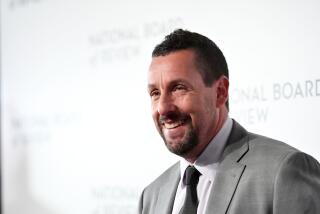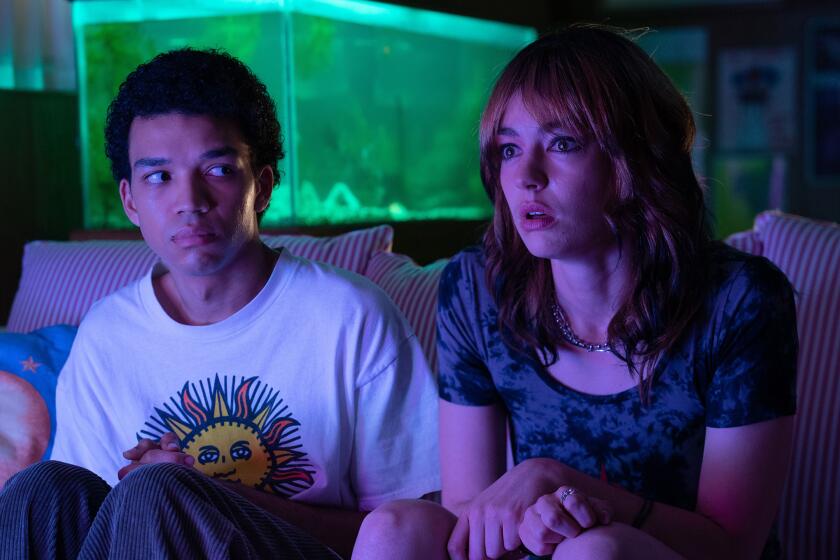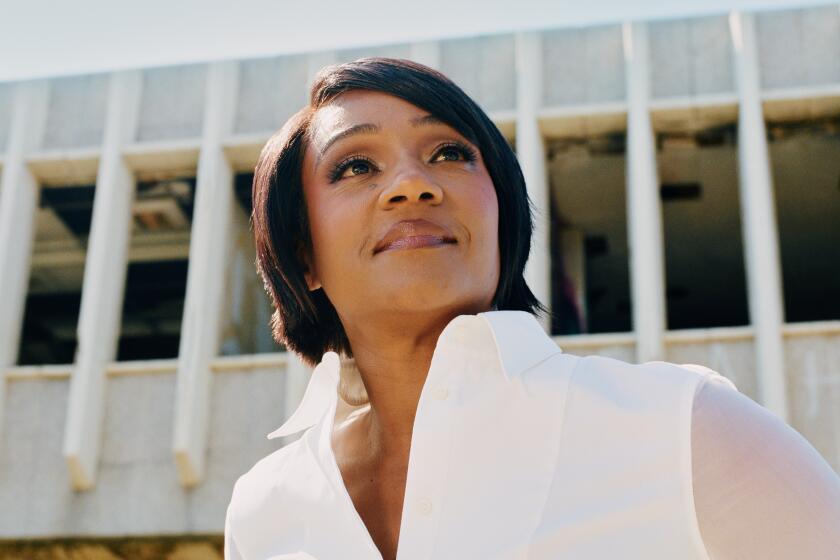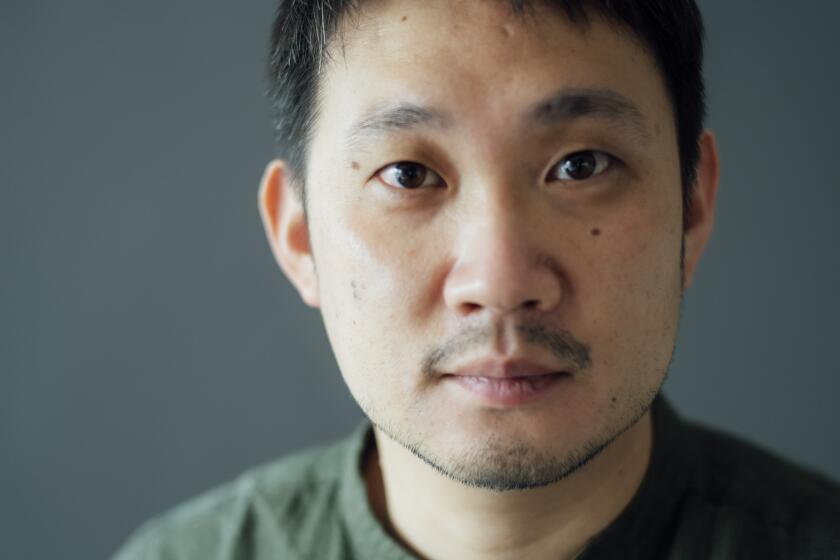A Trim and a Chat
“In some communities, a barbershop is merely a place where you go to get your haircut,” explains actor and rapper Ice Cube. “However, in the black community, barbershops are a place where black people get to hang out and express themselves with no worries.”
He’s talking about a sociological and cultural phenomenon--but he’s also talking about the new film “Barbershop,” which celebrates this urban institution. “Everybody goes to barbershops, but nobody uses them like black folks,” Cube notes.
An ensemble comedy that tells the story of a day in the life at Calvin’s Barber Shop on the South Side of Chicago, “Barbershop” is a gathering place for an eclectic array of characters. Owned by third-generation barber Calvin Palmer (Ice Cube), the shop is home to Eddie (Cedric the Entertainer), an old-time barber prone to delivering a lot of laughs and sage advice; Jimmy (Sean Patrick Thomas), a college student with a superiority complex; Ricky (newcomer Michael Ealy), an ex-con trying to go straight; and Terri (Eve), the shop’s lone female barber, who is just trying to stick it out with the boys.
The story begins when Calvin, struggling to pay his bills and with a baby on the way, decides that he wants to get rid of the shop that he inherited from his father. As the day’s events unfold, we watch the barbers deal with their customers, argue among themselves, and cope with the neighborhood drama that is as much a part of the shop as the shears.
“Calvin is at a crossroads in his life where he can’t decide what he wants to do next,” Ice Cube says. “He’s an ambitious guy who wants to do well by his family but finds himself in a situation that gets out of control. I could relate to him on a lot of levels because he’s frustrated and feels that his life is going nowhere. What Calvin doesn’t realize is that he’s already sitting on something special, and after selling the shop, he finally recognizes his father’s vision and begins to respect that legacy.”
MGM hopes the $12-million film, which opens nationwide Friday, will have the appeal of “The Original Kings of Comedy,” the concert film (starring Cedric, among others) that took in more than $40 million at the box office and became a breakout hit in the African American community.
For “Barbershop” co-producers George Tillman Jr. and Bob Teitel, the pair behind “Soul Food” (1997), which Tillman directed, and “Men of Honor” (2000, also directed by Tillman), it’s another film exploring aspects of black life in America.
Both Teitel and Tillman say they were drawn to the project because they recognized the potential of assembling the rich and diverse characters who live in the world of urban barbershops. (The script was written by Mark Brown.)
“We were also attracted to the film because of the sense of community and commonality that it inspires,” Tillman says. “Barbershops are like little nerve centers in our communities, where people come in for a haircut but always leave with a lot more. In barbershops, people develop relationships that can last a lifetime--they discuss their wives, business and in general have a good time.”
Ice Cube and Cedric the Entertainer were attracted for many of the same reasons. “A lot of things are said and done amongst black folks in a barbershop that would never take place in the real world,” says Cedric, who will be starring in his own Fox TV series this fall.
“In this film, we weren’t afraid to talk about some big issues and give a few viewpoints of controversy. Everybody has an opinion. There’s a pro and con, and a point of view right down the middle. That’s one of the things that we wanted to reflect with this film. Not every black person has the same point of view on sex, religion or race, and it’s good to talk about that and have some fun with those subjects.”
For Ice Cube, making “Barbershop” gave him the chance to reconnect with an institution that played a big role in his early life.
“Man, growing up I spent a lot of my free time hanging out in barbershops getting my hair done and listening to what the older guys had to say about life,” he says. “People need a place where they can express themselves and talk about their dreams and problems and what makes the world tick. There’s a mysticism surrounding barbershops that helps you connect with yourself and community. The people who work in barbershops become like family.”
To give the shop a realistic feel, Teitel and Tillman invested a great deal of time in building the set in Chicago. They also brought on Tim Story as director, who had a background in music videos and understood the importance of aesthetics in telling a story.
“Bob and George knew that in order for people to believe in this story that it was very important that we capture physical realism with the shop,” Story says.
“We paid attention to every possible aspect in designing our set, filling it with African art, memorabilia and photos to bring the shop to life and make it feel as much like a community living room as it does a business. We also enrolled all of the actors in a barber college in Los Angeles for training sessions to familiarize them with the artistry of cutting hair.”
With talk of a sequel already in the works even before the film hits the screen, Story says he’s confident about how audiences will react. “People are going to connect immediately with ‘Barbershop’ because it has a lot of heart and offers a great deal of entertainment on many levels.”
Actor Ealy, who makes his feature film debut in “Barbershop,” found “there’s an energy that you get from barbershops that’s warm and inviting. Tim did a good job telling a story that touches on both the good and bad, but emphasizes the beauty of the inner city.”
For Cedric, the film captures “the moral overtone that exists in barbershops by illustrating the multilayered relationships that take place in the shop between the barbers and their customers and amongst the barbers themselves.”
*
Gil Robertson IV writes about entertainment from Los Angeles.
More to Read
Only good movies
Get the Indie Focus newsletter, Mark Olsen's weekly guide to the world of cinema.
You may occasionally receive promotional content from the Los Angeles Times.
